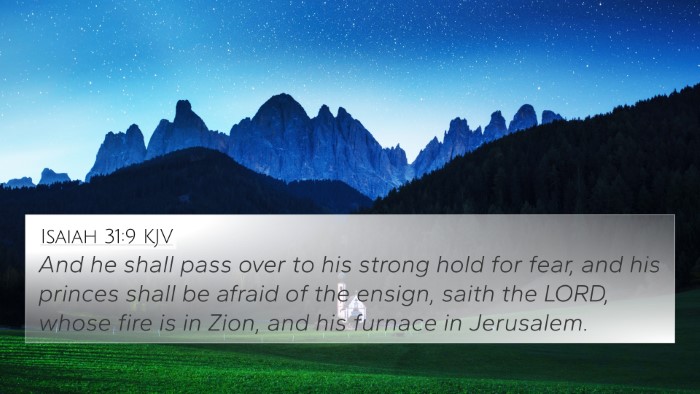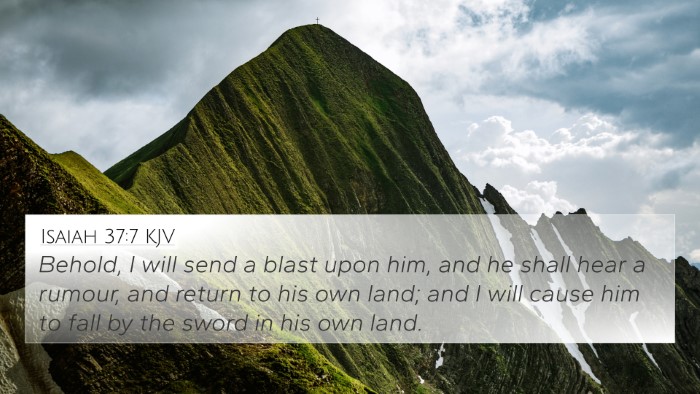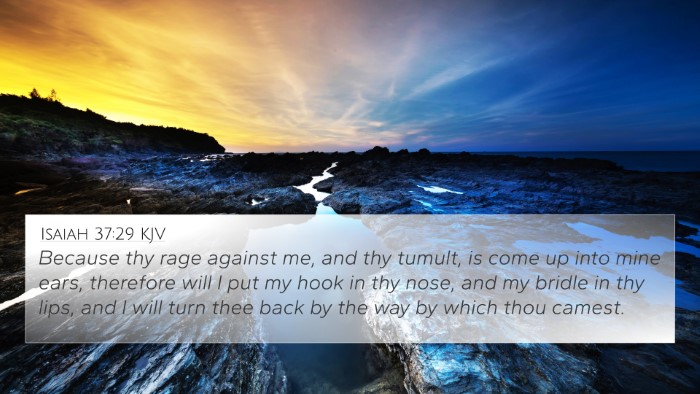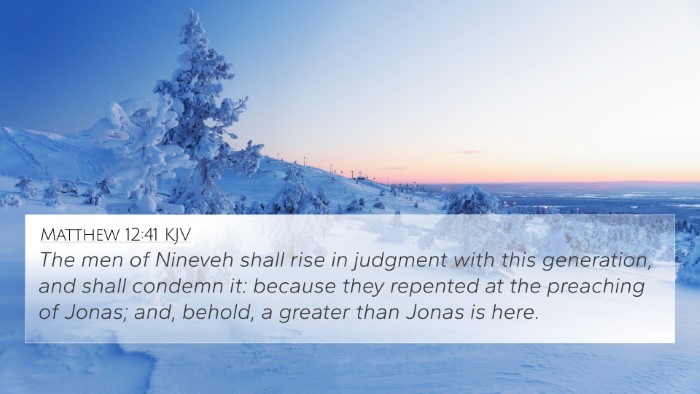Understanding Isaiah 37:37
Isaiah 37:37 states that "Then it came to pass, when king Hezekiah heard it, that he rent his clothes, and covered himself with sackcloth, and went into the house of the Lord." This verse illustrates a profound emotional and spiritual response from King Hezekiah upon receiving a distressing message.
Context and Background
This verse occurs in a time of dire threat to the kingdom of Judah from the Assyrian Empire led by King Sennacherib. The Assyrians had laid siege to Jerusalem, and the message Hezekiah received was one of intimidation—stating that no god had been able to save others from the Assyrians. Hence, Hezekiah’s actions of tearing his clothes and donning sackcloth signify deep mourning and humility before God.
Interpretation of Hezekiah's Actions
- Sackcloth and Mourning: This was a traditional sign of grief and repentance, indicating Hezekiah’s understanding of the gravity of the situation and his need for divine intervention.
- Going to the House of the Lord: This signifies seeking help from God. Hezekiah knew that human efforts alone were insufficient, and thus he sought the presence of God.
Theological Insights
This verse connects to several theological themes, including the importance of humility, the need for reliance on God during crises, and the belief in God’s sovereignty over nations. Hezekiah's actions serve as an example of how believers should respond in times of trouble.
Cross-References
Various verses throughout the Bible echo themes present in Isaiah 37:37. Notable cross-references include:
- 2 Kings 19:1-4: Offers a parallel account of the same event, highlighting Hezekiah’s prayer for help.
- Psalm 34:18: Affirms God’s closeness to the brokenhearted, reflecting Hezekiah's state of heart.
- Isaiah 1:18: Invites Israel to reason with God, both emphasizing repentance and restoration.
- James 4:10: Reminds believers that humility before God will result in exaltation.
- 2 Chronicles 32:20-21: Details God’s response to Hezekiah’s plea, reinforcing divine intervention.
- Matthew 5:3: “Blessed are the poor in spirit” reflects the posture Hezekiah took in humility.
- Philippians 4:6-7: Encourages believers to present their requests to God, mirroring Hezekiah’s actions of seeking help.
Application for Believers
Hezekiah's example in Isaiah 37:37 encourages believers to turn to God in times of distress, emphasizing the power of sincere prayer and humility. In contemporary application, Christians may face situations that challenge their faith, similarly evoking a need for God's guidance and support. The verse also encourages a communal aspect of seeking God, as communal mourning and petition were integral during biblical times.
Thematic Connections
This verse can be linked to broader themes such as:
- Faith in Adversity: Just as Hezekiah demonstrated faith amidst dire circumstances, believers today are called to trust God during trials.
- God’s Sovereignty: The acknowledgment that God is in control even when situations seem bleak.
- Prayer and Intercession: Highlighting the significance of prayer as a means of communication with God, pivotal for seeking aid.
Conclusion
In summary, Isaiah 37:37 encapsulates a critical moment in Hezekiah's reign, marked by desperation leading to sincere supplication. By studying this verse alongside its cross-references, believers can grasp the importance of humility, the need for divine intervention, and the assurance of God's presence during life’s challenges. This verse serves not only as a historical account but also as an enduring lesson in faith and reliance on God.
Further Study
For those interested in deeper exploration, consider looking into tools for Bible cross-referencing, such as a Bible concordance or a Bible cross-reference guide. These resources can provide additional insights into the connective tissue within Scripture, amplifying understanding and fostering a richer study of the Bible.











